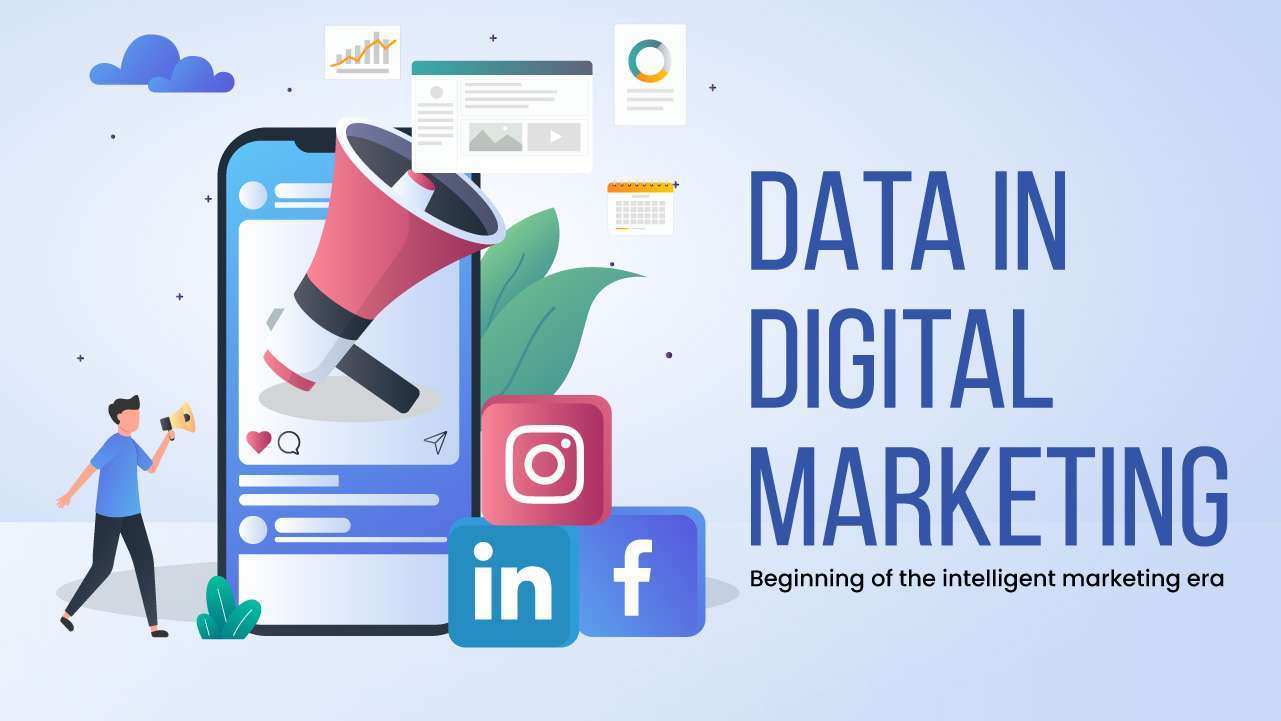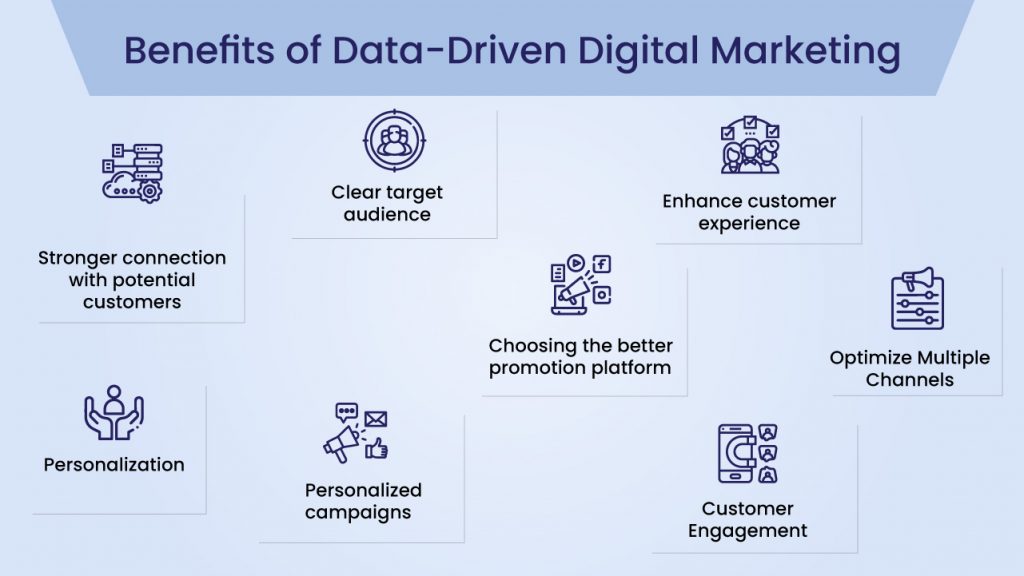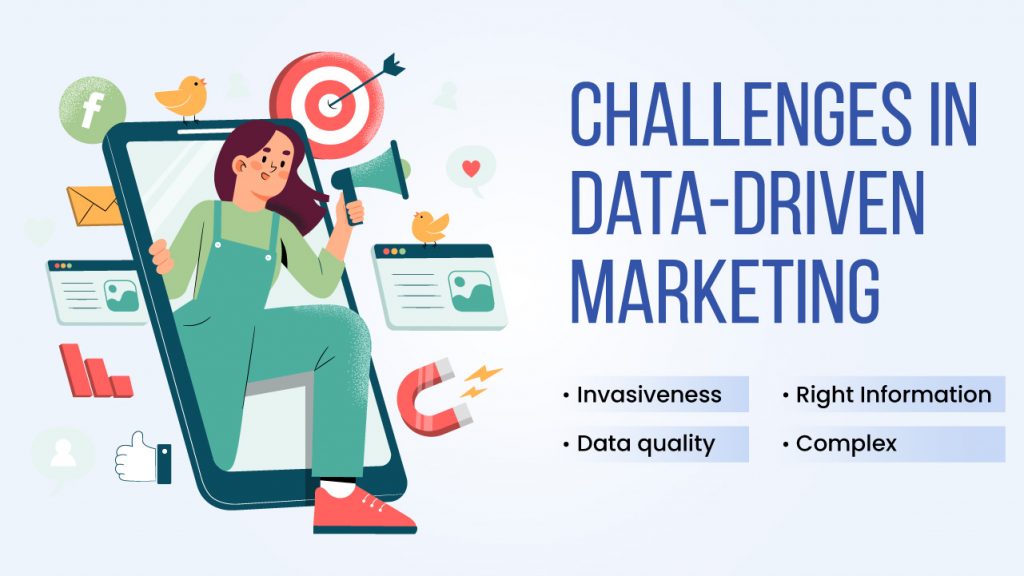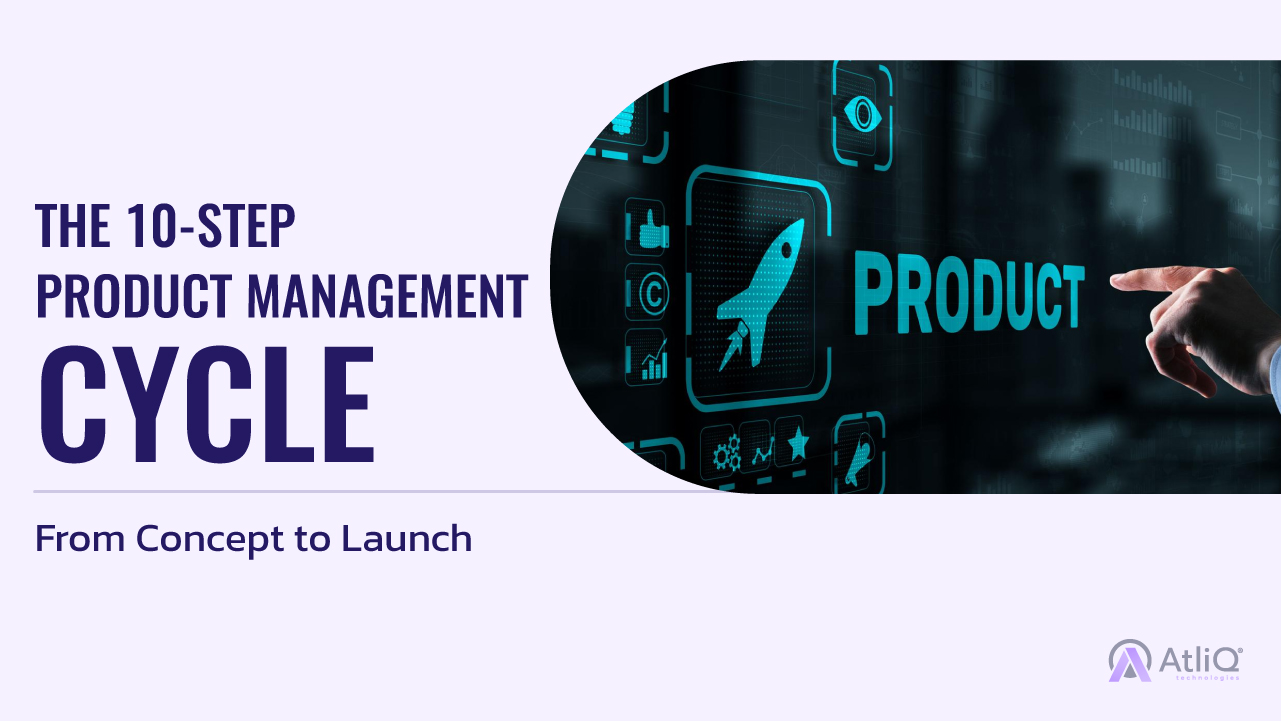Data in Digital Marketing – Beginning of the Intelligent Marketing Era

A couple of decades back, marketing was done at a mass targeting level, majorly through print media and television advertisements. Fast forward to today, we have personalized advertisements targeted toward each individual. The current generation brands are focusing more on data-driven marketing strategies, which use smart data to deliver better ROI. The influential marketing ideas are now generated with the help of data. Shortly, one can expect data to be at the core of a successful marketing strategy. Before understanding how a brand uses data-driven marketing, let us first understand what data-driven marketing is.
Optimal use of customer information for targeted media buying and creating data-driven strategies can be said to be data-driven marketing. The use of data-driven marketing can be said to be one of the most prominent transformation changes occurring in the marketing landscape. This ad technology now enables personalization by answering questions like who, when, where, and what and gives actionable answers. Data-driven marketing strategies work on a customer-first marketing strategy, thus making the outcome more personalized.
Benefits of Data-Driven Digital Marketing
If the data in digital marketing is leveraged effectively, a brand can deliver tailored service to every individual customer even if they are in the millions. With data from a real-time campaign, the marketers can adjust the strategy to match the expected customer engagement.

- Clear target audience: Insights about the customers will allow the marketers to gain a better understanding of their target audience and increase their ability to predict the customer’s behavior better. With data-driven audience targeting, the marketing campaigns can attain the right customers at the right time and the right message.
- Stronger Connection with potential customers: When the marketers understand their customers better, they can connect with them better. An immense amount of data can be obtained from digital marketing platforms. With several platforms available, marketers get a chance to deliver a 1-to-1 experience to individual customers even on a massive scale.
- Choosing the better promotion platform: Through data-driven marketing strategies, brands not only are able to identify the target audience preference, but also the channel which they should use to keep their audience engaged. With such insights, the brands can position their message where their target audience is or will be reaching soon.
- Personalization: Today’s audience is no longer attracted to generic marketing messages. They might get frustrated when they are bombarded with irrelevant content. To keep the customers engaged the brands should focus more on personalizing the customers’ experiences. The brands should aim to identify the potential customer’s pain points and deliver a holistic view for them. While you understand the benefits of data-driven marketing, the first question that arises in your mind is how to make your marketing data-driven. Every organization irrespective of its industry is now walking towards being data-driven. However, only a fraction of them was able to nail it by keeping data at the forefront in most of the decisions. Below mentioned are a few of the keys to making the data-driven strategies right.
- Personalized campaigns: The use of big data and analytics tools can enable marketers to attain highly accurate campaigns with individualized communication. Marketers claim that customer-centric communication can create more demand. Brands have to analyze the data back with their marketing strategies and get a much better idea of what and when to send messages. The brands can use these data efficiently and increase the chance to hit the emotional chord and encourage the audience to engage positively.
- Enhance customer experience: Customers only feel connected when they get the information they feel useful. This is possible with data-driven marketing campaigns. Brands use data-driven marketing by conducting surveys to identify the gaps and thus enhance customer experience. With customer value analytics, marketers can speed up the sales cycle without the personalized services being compromised. Big data gives an omnichannel service that can enhance the customer experience and keeps consistent progress.
- Optimize Multiple Channels: Leads generated from different platforms respond differently, and thus marketers have to create strategies according to the channels to optimize the conversion rate. With data-driven marketing, the marketers can identify individual channel performance and which message evokes the required user behavior. Marketers can also identify the content format which works the best for the given marketing channel.
- Customer Engagement: An increase in customer engagement brings in brand trust which will enhance brand perception. This will directly lead to an increase in purchase and brand advocacy. As data-driven marketing promotes messages relevant to the customers’ needs, it is expected to drive more engagement.
Challenges in Data-Driven Marketing
While data-driven marketing proves beneficial for brands and customers, every coin has two sides. Here are a few challenges which marketers might face when they opt to implement data-informed marketing strategies.

- Invasiveness: Even though the customers prefer personalization, it doesn’t mean they want to come transparent to the organization. Many people might feel disconnected when they realize that their information is collected and stored without their knowledge.
- Data Quality: If the data collected is not up to the standards, then they might not be able to make the right decisions on different dimensions they want to work on. This brings in the risk of decisions that might not meet the actual customer’s needs. Thus before implementing the data-driven tactics, brands must ensure the data quality and standards.
- Right Information: Many firms have been unable to produce the required ROI, even after investing in big data. It is because they often focus on collecting data in a large quantity but not on collecting the right data. To ensure the collection of the right data, brands need to have the right policies and infrastructure to deal with it.
- Complex: Understanding and implementing data-driven marketing strategies and ensuring the right and correct usage can be tiresome. Even though the process is highly complicated, the returns are totally worth it. Understanding where to start can be difficult, even if one is equipped with proper talent & technology.
As the brands start to know more about the potential and existing customers, the more success it gets in their marketing efforts. The main aim of data-driven marketing is to convert business data into sales. Marketing has evolved from providing the required products or services, to crafting targeted messages by understanding the audience’s behavior. With data-driven marketing, the companies use the latest data analytics to pinpoint the optimal media, content, and timing and craft an efficient personalized message.




